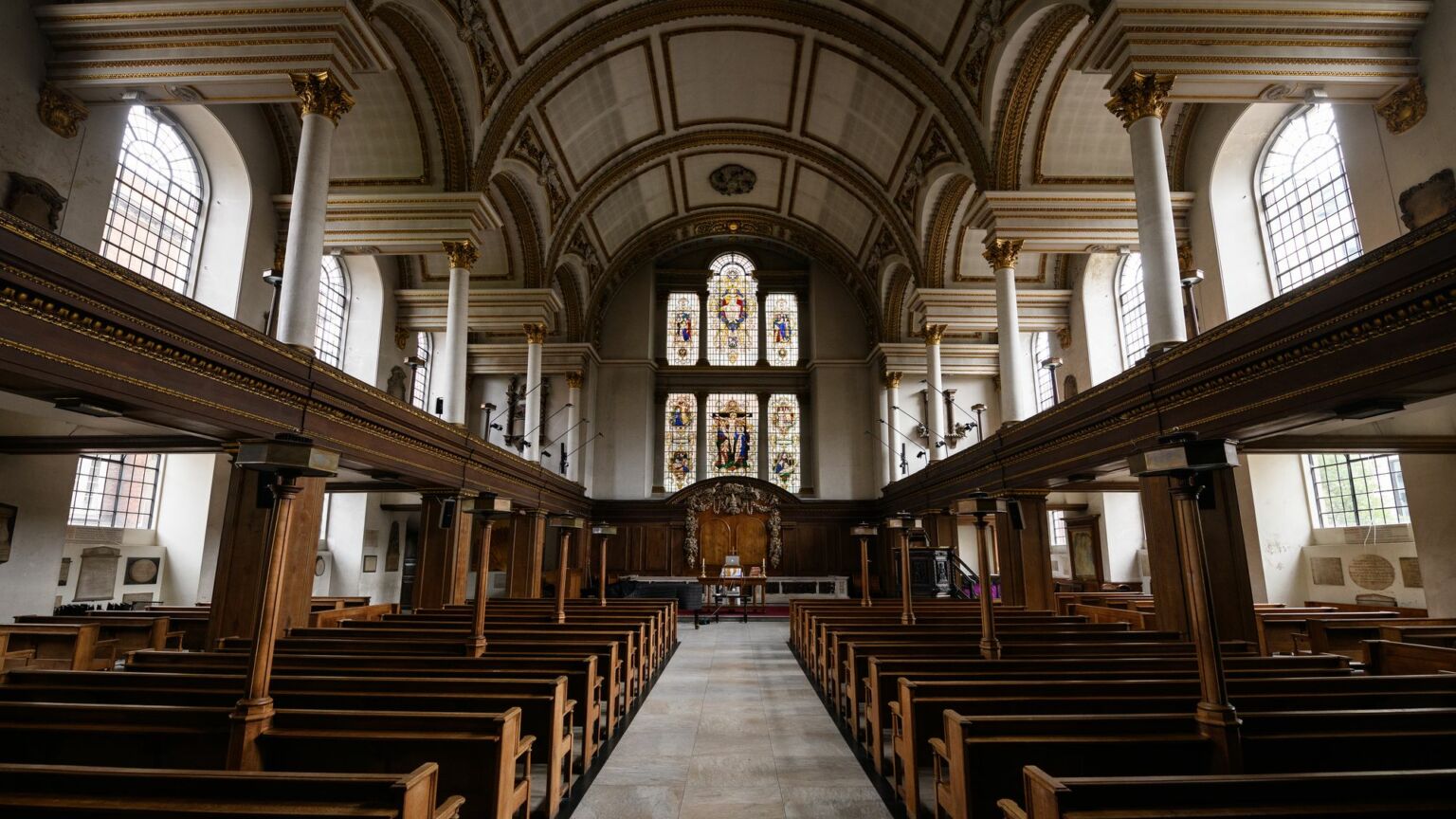Wokeness will kill the Church of England
The church’s mad plan for ‘slavery reparations’ is driving away its few remaining parishioners.

Want to read spiked ad-free? Become a spiked supporter.
When you think about the Church of England, you might imagine tea with the vicar or village bake sales. Most probably don’t associate it with racial identity politics.
Yet the church has been taken over by an identitarian faction in recent years. In January last year, the church announced a £100million slavery reparations fund in an effort to ‘address the past wrongs of slavery’. The decision followed a report, published in the same month, which found that the church had invested in a company that transported slaves. Since this announcement, the church has been engulfed in a firestorm of controversy. Earlier this month, church leadership was forced to promise that no parish donations would be earmarked for the reparations fund, after parishioners stopped giving cash in protest.
Like most British institutions that are over a few hundred years old, the church did have some involvement in slavery. In the 17th and 18th centuries, it reportedly held investments in companies and colonies that were directly involved in the transatlantic slave trade. Notably, the church also benfitted from investments in the South Sea Company, which was granted a monopoly on British trade in South America, including the slave trade. Various clergymen and church institutions also owned slaves or profited from plantations in the Caribbean.
While intended as a gesture of penance, the church’s reparations fund is ultimately nonsensical. Despite the history, today’s parishioners bear no direct responsibility for events hundreds of years ago. Modern-day congregants are generations removed from the individuals who engaged in or profited from slavery. They were neither participants in nor beneficiaries of the injustices committed centuries ago. Holding them financially or morally accountable for the crimes of their predecessors, even indirectly, is inherently unjust.
More than that, though, these reparations are also deeply impractical. The church’s significant financial resources could be more effectively spent addressing issues directly impacting communities. Investing in education and alleviating poverty could provide much more tangible benefits than making symbolic gestures. Even simply repairing the many decaying parish churches across the country would be a better use of time and money. The diversion of funds towards something as abstract as reparations neglects the very real, urgent injustices that could be addressed.
Unfortunately, the church has been completely captured by racial identity politics. It recently published ‘myth-buster’ guidance to justify reparations and counter what it calls ‘misleading impressions’ in the media coverage. It is also quite happy to set aside hundreds of thousands of pounds for roles such as an ‘anti-racism practice officer’, whose job it is to ‘deconstruct whiteness’. Earlier this year, at the General Synod’s bi-annual conference, the church even adopted a ‘racial justice’ motion, which will force every parish in England to develop a ‘race action plan’.
The result of this will not be to fight racism, but to create ever more disconnect between the church leadership and its community. A growing number of parishioners are now refusing to donate to their local church in fear that their money will be spent on this woke nonsense. This indifference toward congregants is particularly dangerous, given that the church is already in a precarious position.
A recent analysis by the Telegraph found that Sunday church attendance has plummeted to 80 per cent of pre-pandemic levels. More than just a blip, this drop follows decades of decline. Parish attendance has more than halved since 1987. Church leaders appear more concerned with placating this backlash rather than genuinely addressing the grievances of their congregants. In doing so, they are actively alienating their own members.
Instead of dwelling on past wrongs, the church would better serve its purpose by focussing on the grievances of its remaining parishioners. If it fails to do so, the Church of England’s doom spiral will likely continue. It will soon lose what little purpose it has left.
John Mac Ghlionn is a researcher and essayist. Follow him on X: @ghlionn
Picture by: Getty.
Who funds spiked? You do
We are funded by you. And in this era of cancel culture and advertiser boycotts, we rely on your donations more than ever. Seventy per cent of our revenue comes from our readers’ donations – the vast majority giving just £5 per month. If you make a regular donation – of £5 a month or £50 a year – you can become a and enjoy:
–Ad-free reading
–Exclusive events
–Access to our comments section
It’s the best way to keep spiked going – and growing. Thank you!








Comments
Want to join the conversation?
Only spiked supporters and patrons, who donate regularly to us, can comment on our articles.